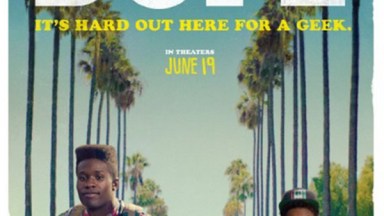
Does Dope treat Malcolm — an ambitious, intelligent, nonviolent black adolescent — like a freak, or does it depict a world in which he’s viewed that way? Does the film engage its precursors (movies like Boyz N the Hood and Menace II Society) as update, pastiche or critique, or as some combination? These are complicated questions, but your answers are likely to determine your response to this amiable, energetic, scrambled movie. It’s easy to root for Malcolm, to admire his pluck and share in his enthusiasm. It may be a little harder to buy what he and Dope are selling.
Dope wears its referentiality on its sleeve: It’s a remorselessly entertaining, Frankenstein’s monster of pop-culture borrowings and appropriations. So much so that it becomes very much its own thing.
Dope often brings to mind early Spike Lee, not because its characters represent a broad cross section of black life or because it’s fixated on the aesthetics of the Mars Blackmon era, but because writer-director Rick Famuyiwa seems to have opinions on everything from race to romance to politics, and treats filmmaking partly as an excuse to voice them.
Light on its feet, gleefully profane and deliciously droll as it manipulates the notion of innocence (and plays with our expectations in the process), Rick Famuyiwa’s Dope traces the rise—and steeper rise—of a geeky high-school senior who learns how to work the system.
Now it’s your turn! Will you check out Dope?
— Casey Mink
Follow @Casey_Mink